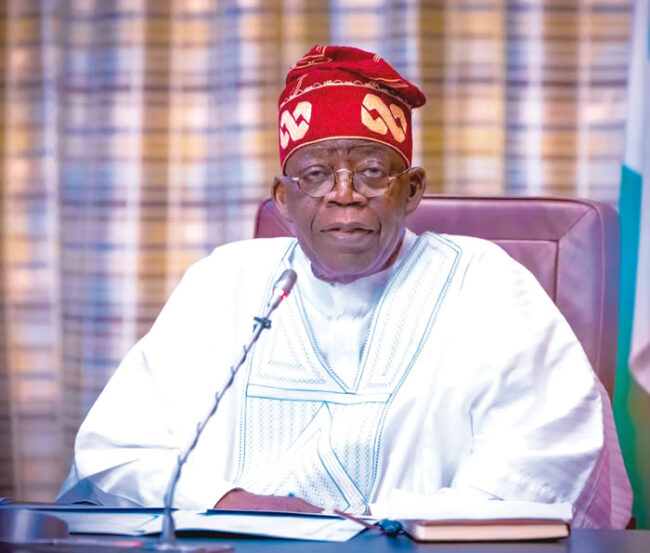The Presidency has made a pitch to international investors, urging them to seize new opportunities in Nigeria’s vast and untapped energy sector.
Olu Verheijen, Special Adviser to President Bola Tinubu on Energy, made the call at the African Energy Week in Cape Town, South Africa.
According to a statement issued on Thursday by Abiodun Oladunjoye, the State House Director of Information, Verheijen, speaking before a diverse audience of energy executives, policymakers, and industry leaders, highlighted recent reforms aimed at reshaping Nigeria’s energy landscape and attracting capital to the country’s oil and gas industry.
Despite Nigeria’s abundant natural resources, Verheijen acknowledged that the country has historically underperformed in oil and gas production. She pointed to nations like Brazil, which has only 30% of Nigeria’s oil reserves but produces 131% more. According to Verheijen, this gap is primarily due to underinvestment in Nigeria’s energy sector.
“Despite our abundant endowments, we have underperformed against our potential. For example, Brazil holds only 30% of Nigeria’s oil reserves but produces 131% more,” Verheijen said. “This is largely due to underinvestment.”
She further emphasized Nigeria’s declining share of African oil and gas investments. Since 2016, Nigeria has attracted only 4% of the continent’s total oil and gas investments, while other African nations, with fewer resources, have attracted far greater capital. Verheijen cited a stark example of how International Oil Companies (IOCs) have committed over $82 billion to deepwater investments outside Nigeria since 2013, the last time Nigeria’s deepwater projects reached a Final Investment Decision (FID).
“Between 2013 and today, IOCs operating in Nigeria have committed more than $82 billion to deepwater projects in other countries that they deem to be more attractive destinations for their capital,” Verheijen stated.
“This is a critical gap that Nigeria must address,” she added.
In response, Verheijen highlighted the Tinubu administration’s ongoing efforts to revitalize the country’s energy sector, particularly through new fiscal incentives and regulatory reforms designed to make Nigeria a more attractive investment destination.
One of the most significant changes, according to Verheijen, is Nigeria’s introduction of fiscal incentives for deep offshore oil and gas projects, along with the first-ever fiscal framework for deepwater gas.
The Nigerian government has also launched efforts to improve the security environment for oil and gas operators in the country, collaborating with the National Security Adviser’s office to create targeted security directives addressing industry-specific challenges.
Verheijen also outlined efforts to streamline the often complex and lengthy approval processes that have historically delayed projects and raised costs for investors.
ALSO READ:Tinubu attributes uninterrupted democracy to media freedom
She noted that the Nigerian government aims to shorten the average contracting timeline from 38 months to just 135 days, while also working to reduce the 40% cost premium that has long made Nigeria one of the more expensive places to operate in the oil and gas industry.
“Our target is to shorten the contracting timelines from an extensive 38 months to just 135 days, while also working to eliminate the 40% cost premium that currently exists within the Nigerian petroleum industry,” Verheijen said. “These changes will be game-changers for the sector.”
Verheijen also discussed Nigeria’s broader energy strategy, which includes pushing for greater investments in midstream and downstream sectors like Compressed Natural Gas (CNG), Liquefied Petroleum Gas (LPG), and electric vehicles.
These sectors are part of President Tinubu’s Presidential Gas for Growth Initiative, which aims to displace traditional fuels like petrol and diesel in key sectors, including heavy transport, decentralized power generation, and cooking.
“Through this initiative, we are stimulating demand for electric vehicles while also reducing reliance on diesel and petrol,” she explained. “We’ve introduced fiscal incentives to catalyze investment in these growing sectors.”
Further demonstrating the government’s commitment to fostering growth, Verheijen revealed that Nigeria has already unlocked over $1 billion in investments across the energy value chain. By mid-2025, the government expects to see FID on two major projects, including a multi-billion-dollar deepwater exploration project—the first of its kind in over a decade.
In addition to oil and gas, Verheijen emphasized the administration’s focus on expanding Nigeria’s power sector to provide more reliable electricity to the country’s underserved population.
With approximately 86 million Nigerians lacking consistent access to electricity, Verheijen shared plans to provide urban areas and industrial hubs with up to 20 hours of electricity daily by 2027.
Key initiatives to improve the power sector include deploying seven million smart meters, expanding off-grid solutions, and addressing legacy debt to improve revenue assurance.
Highlighting broader macroeconomic reforms under President Tinubu’s leadership, Verheijen expressed confidence that Nigeria is poised for significant growth. She noted the removal of fuel subsidies and the liberalization of foreign exchange policies as key steps toward unlocking the country’s economic potential.
“Nigeria is poised for unprecedented growth,” Verheijen concluded. “Under President Tinubu’s leadership, we are implementing reforms that will create jobs, attract investments, and ensure the country’s energy security. We invite global partners to join us in this next chapter of growth.”
Verheijen’s remarks reflect Nigeria’s ongoing efforts to reassert itself as a global energy powerhouse while demonstrating a commitment to creating a more competitive and sustainable environment for international investment.
As Africa’s largest oil producer, the country’s potential for growth remains immense if the necessary reforms can deliver on their promise.
Get real-time news updates from Tribune Online! Follow us on WhatsApp for breaking news, exclusive stories and interviews, and much more.
Join our WhatsApp Channel now
